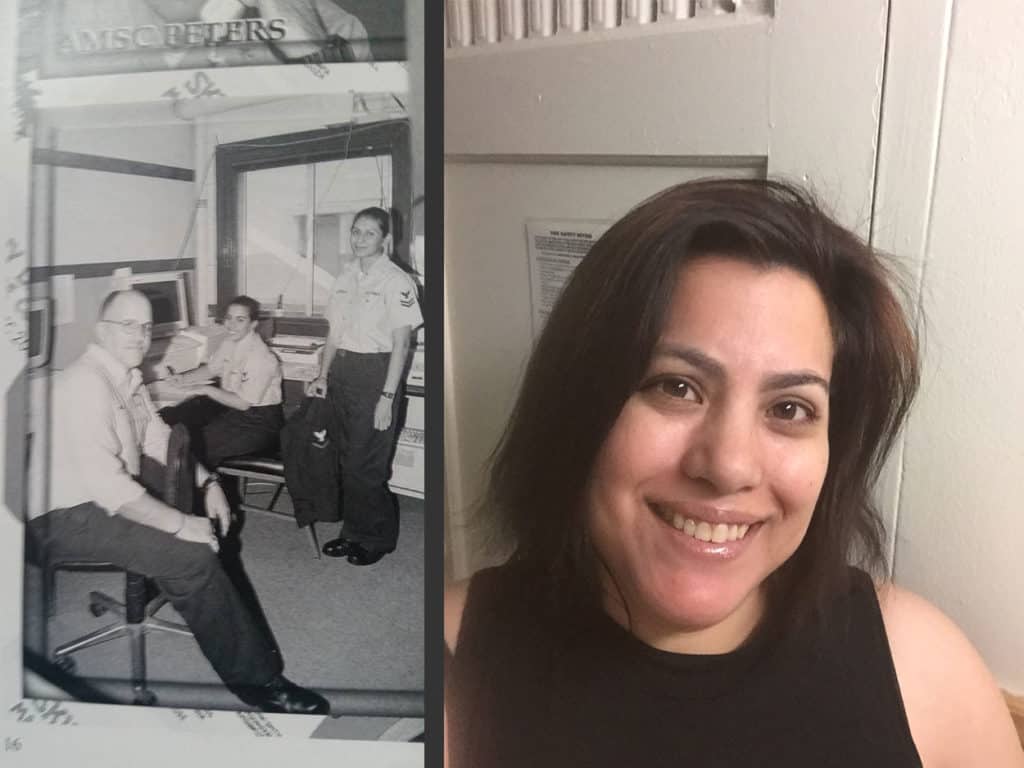Women Veterans and Military Sexual Trauma: the Aftermath
It’s important to acknowledge that all branches of the armed services are working to eliminate military sexual trauma (MST), to bring perpetrators to justice and to provide treatment for victims. That said, this comes after years of ignoring or dismissing complaints. Years.
The National Veterans Foundation’s concerted outreach to female veterans finds that MST is often a factor in their lives when we reach them. You won’t hear that from them right away. They call our Lifeline for Vets about housing, education, employment and VA claims just like their male counterparts. But when we engage them in conversation on the phone or on the street, it starts to leak out that their symptoms of PTSD aren’t necessarily related to combat. The biggest clue is the nature of a woman’s discharge from the service. If her discharge is not “Honorable” we know to listen even more closely.
For a long time, women who experienced MST and reported it were offered a discharge to get them out of the service. This probably looked like the best way to safety for the victim. But the consequences were heavy, and she wasn’t in the best place to consider anything long term. Her immediate need was to get out of the situation. But any discharge that is not Honorable affects a veteran’s benefits. I’ve talked about this before, the price of “bad paper.”
The terms “Personality Disorder” or “Adjustment Disorder” were frequently used as grounds for an early discharge. Imagine what that would look like to a prospective employer. Stephen Losey, of the Air Force Times, May 20, 2016, quotes from the Human Rights Watch report “Booted: Lack of Recourse for Wrongfully Discharged U.S. Military Rape Survivors,” “…although the Defense Department has dramatically reduced its use of discharges for personality disorders after 2009, there were still 31,000 veterans discharged on those grounds between fiscal 2001 and 2010.” Were all of them MST victims? Certainly not, but according to Sarah Darehshori, a senior counsel at Human Rights Watch, roughly 30 percent of that 31,000 were women.
Here are some figures from “Understanding the Impact of Military Sexual Trauma,” a presentation by Nancy Adamson, MS, LMFT, LPCC of the Vet Center program. Her statistics are from records obtained by Yale Law School’s Veterans Legal Service Clinic under the Freedom of Information Act:
- S. Army: 16 percent of soldiers are women; they constitute 24 percent of personality disorder discharges.
- Air Force: 21 percent of the ranks; 35 percent of personality disorder discharges.
- Navy: 17 percent are women; 26 percent of personality disorder discharges.
- Marines: 7 percent of the Corps; 14 percent of personality disorder discharges.
Please understand that not all these discharges were the result of MST. In fact, the records don’t include the number of women who reported MST. Still, the numbers look disproportionately skewed toward women to me.
My point is that a lot of damage had been done before the whistle blew on MST. We’ve got a lot of women veterans out there who still need counseling and treatment for MST-related PTSD. And I think we need to look again at the discharges they received. To deny a female veteran her benefits as an outcome of experiencing MST more than doubles the injury and injustice. The same goes, of course, for male MST victims.
If you know a veteran, male or female, who needs help, here’s our Lifeline for Vets: 888.777.4443.
You can be a part of our mission to help Veterans by making a tax-deductible donation!
About the Author
SUBSCRIBE TO OUR BLOG AND NEWS!
By submitting this form, you are granting: NATIONAL VETERANS FOUNDATION INC permission to email you. You may unsubscribe via the link found at the bottom of every email. (See our Email Privacy Policy for details.)
Related Posts





